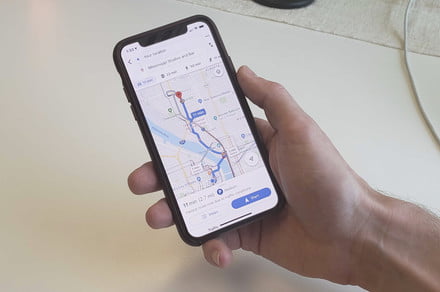Google Maps’ long-running problem with fake listings has hit the headlines again. A report on Thursday by the Wall Street Journal claimed that the service has around 11 million business that are in some way false, and despite ongoing efforts, the web giant “can’t seem to stop the proliferation of fictional business listings and aggressive con artists on its search engine.”
Fake listings can pose a number of risks for people who use Google Maps to find services.
The Journal cited the example of a woman with a faulty garage door who turned to Google Maps to find the number of a repair company that she had used before. A man turned up in an unmarked van, repaired the door, and duly charged the woman double what she had paid previously. It turned out the man had hijacked the listing of the legitimate company, replacing the correct phone number with his own.
It seems that many of the scam businesses include those contacted for urgent matters — think vehicle breakdown services, plumbers, locksmiths, and so on — meaning it’s less likely the caller will take the time to verify its details.
But other scams include the creation of things like fake profiles for business rivals that show erroneous phone numbers and addresses, or the creation of listings for hotels that don’t actually exist, with guests only learning of the fact when they show up, leaving them out of pocket.
Additionally, bogus reviews on Google Maps that unfairly criticize a business can ruin the reputation of the victim, while positive comments that are actually fake can unfairly boost a rival’s reputation.
Soon after the Journal’s article appeared on Thursday, Ethan Russell, product director of Google Maps, posted a message acknowledging the problem, and outlined some of the measures being taken by the company to tackle it.
“Even though fake business profiles are a small percentage of the overall business profiles on Google, local business scammers have been a thorn in the internet’s side for over a decade,” Russell wrote. “We take these issues very seriously and have been using a wide array of techniques and approaches to limit abuse on our platforms.”
Russell said that the company has implemented strict policies for business listings and recently introduced a more effective way for people to flag suspicious businesses.
“It’s a constant balancing act and we’re continually working on new and better ways to fight these scams using a variety of ever-evolving manual and automated systems,” Russell wrote. But he added that scammers use a wide variety of deceptive techniques to try to game its system, saying: “As we shut them down, they change their techniques, and the cycle continues.”
Defending the company’s position, Russell said that in 2018 the company took down more than three million fake business profiles, with more than 90 percent of those profiles removed before a user could see it.
For those using Google Maps to search for a business or service, the advice is to verify its legitimacy via additional online searches before making the call.
Editors’ Recommendations
- Students reportedly scam Apple out of nearly $1 million with fake iPhones
- How to protect yourself from GoFundMe scams before donating
- FTC forces the closure of four major robocall scam operators
- Cell phone carriers now have the power to stop robocalls. When will they use it?
- How to delete your Kik account

